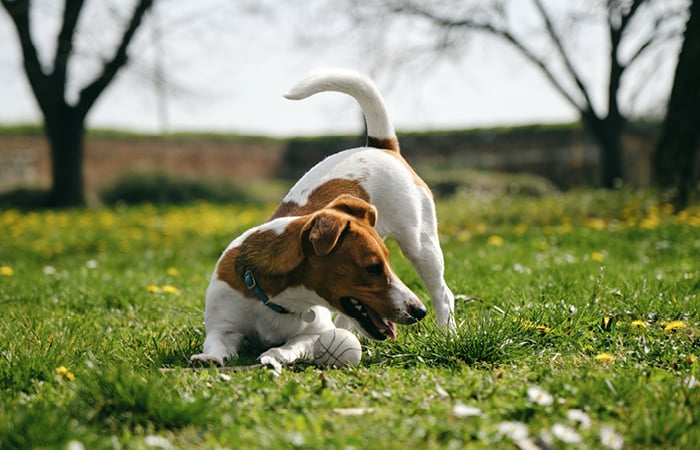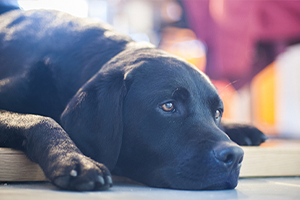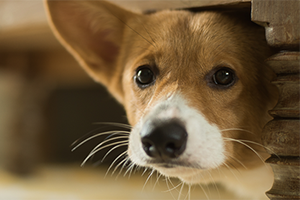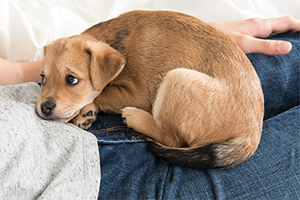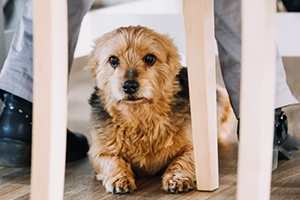How to spot signs of stress in dogs
Quick Links
What causes stress in dogs?
There are many different reasons why our dogs may feel stressed or anxious. Some common reasons include:
- Changes in household dynamics, such as a death, a move or a new baby.
- Additional noise at home, such as having building work done.
- The loss of a companion pet.
- Recovery from surgery.
- Raised voices and arguing.
- A lack of routine and inconsistent handling.
- Conflict with another animal.
- Older dogs may be less tolerant of change and may avoid social interaction, while dementia can have an effect on anxiety levels. Joint or muscle pain can also be very stressful.
- Changes in your work patterns. If you have been working from home, your dog might not be used to having people around constantly. If you then return to work, this could lead to separation anxiety.
Tell-tale signs of stress in dogs
Dog licking lips repeatedly

Excessive yawning

Dog turning their head from side to side

Hunching down or hyperactivity

Unusual toilet habits
.png)
How serious are signs of stress in dogs?
How to calm a stressed dog
- Provide safe, quiet places to hide – like a cupboard under the stairs, or a dog crate draped with blankets.
- Avoid being with your dog constantly, as this may make it difficult for your dog to cope with being left alone, and possibly lead to separation anxiety. Try to leave your dog in another room occasionally – with a tasty chew or stimulating toy for distraction.
- Don’t crowd your dog or make too much fuss of them – they may need to retreat to their own space to feel safe.
- Stick to routines for sleeping, feeding, exercise and play.
- Manage your own voice and body language. Owner stress or erratic behaviour can lead to stress in dogs, so it’s important to keep as calm as possible around your pet.
- To prevent your dog from feeling threatened, avoid approaching them head-on. Get down to their level and don’t make direct eye contact or lean over their body.
- If your routines have changed and your dog is getting less exercise than normal, play some games together and encourage your dog to use their brain.
- Spend some time with your dog each day practising training or teaching them new commands.
- Don’t get cross – remember your dog isn’t ‘acting up’ to annoy you.
- Try a pheromone plug-in diffuser or spray at home, or specially formulated nutritional supplements (available from your vet).
All dogs are different and many factors come into play when handling a stressed dog. If your dog’s anxious behaviour persists even when they are away from stressful situations, consider asking your vet to refer you to a qualified animal behaviourist who’ll help you come up with long-lasting solutions.
Petplan is a trading name of Pet Plan Limited (Registered in England No. 1282939) and Allianz Insurance plc (Registered in England No. 84638), Registered office: 57 Ladymead, Guildford, Surrey GU1 1DB.
Pet Plan Limited is authorised and regulated by the Financial Conduct Authority. Financial Services Register No. 311969. Allianz Insurance plc is authorised by the Prudential Regulation Authority and regulated by the Financial Conduct Authority and the Prudential Regulation Authority. Financial Services Register No. 121849. Pet Plan Limited is a subsidiary of Allianz Insurance plc.



